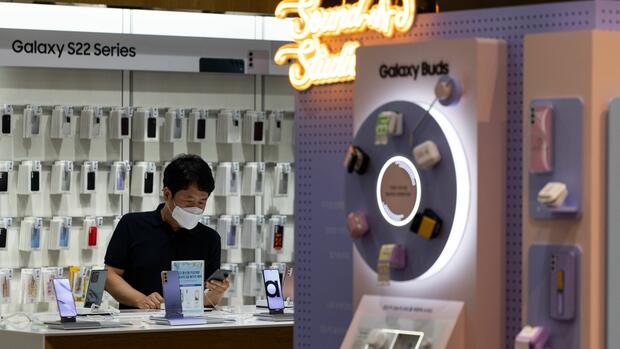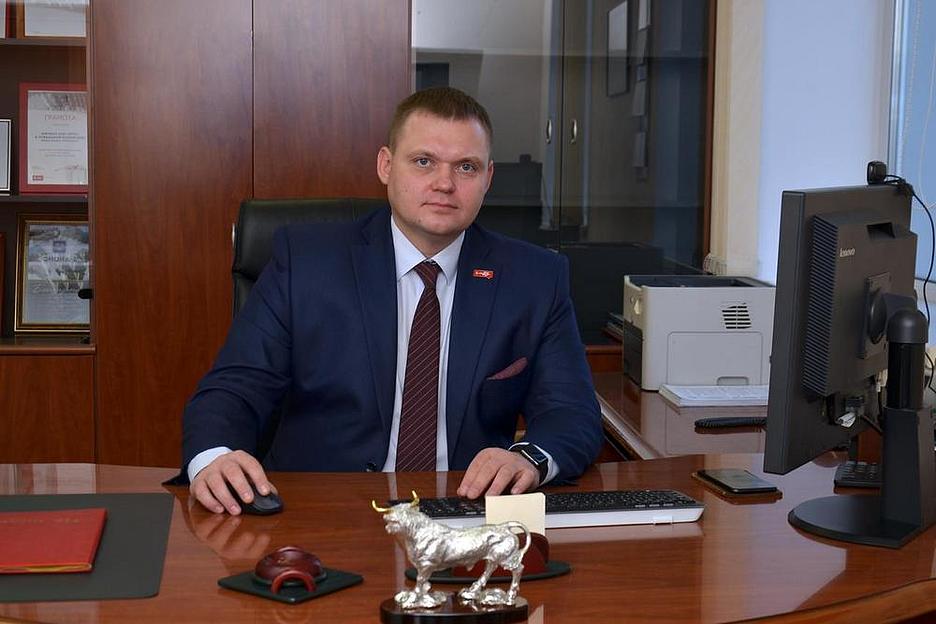Seoul Samsung continues to grow thanks to its strong semiconductor business. In the second quarter, sales of 77.2 trillion won ($ 59.2 billion) were 21 percent higher than the previous year, while profit increased by twelve percent to 14.1 trillion won ($ 10.8 billion). This was the second best quarterly result in the company’s history.
The chip business achieved a record result for the second quarter in a row, Samsung said. It now accounts for 37 percent of sales and 71 percent of operating profit. Samsung makes significantly less money on other products such as smartphones, televisions and household appliances.
With this, Samsung once again underlines that the group, like the other semiconductor manufacturers, is one of the winners of the global chip crisis. Companies worldwide are suffering from supply bottlenecks for the control centers of digital products. The high demand is driving up the prices of chips – and with it the profits of manufacturers.
Chipmaker Qualcomm on Wednesday reported $10.9 billion in revenue, up 36 percent from a year earlier in the last quarter. Taiwan’s contract manufacturer TSMC even increased sales by 44 percent to $ 17.9 billion and net profit by as much as 76 percent to eight billion dollars.
Not even the slower sales of smartphones and other consumer electronics, triggered by high inflation, can slow down manufacturers, Samsung made it clear. The business with memory chips for mobile devices and computers, in which the Koreans are the world market leader, was lower than expected, Han Jin Man, a vice president of the group, said in the investor call.
However, the weakness was partially offset by solid demand for data servers. Because the server market is less affected by geopolitical crises such as the Ukraine war, Han explained. “Because they are considered an indispensable infrastructure.“ In addition, investments in artificial intelligence applications and hybrid servers that combine storage on-premises and in the cloud would grow.
Developing bets on small nanometer chips
Samsung’s bet on the future is also growing: the foundry business. This involves contract manufacturing of semiconductors for other companies. Samsung is trying to chase market shares from the world market leader TSMC in the growing segment.
The Korean challenger now wants to grow faster than the market. For this, he tries to present himself as a technology leader. Samsung claims to have delivered the first chips with three nanometer small structures worldwide in June. The smaller the structures, the less energy the chips need with higher computing power. Therefore, chip manufacturers are vying fiercely to produce ever smaller and more compact chips.
Samsung’s investments show how great the financial effort – and thus also the risk – are. In the past quarter, Samsung invested $ 9.4 billion. The chip division accounted for 90 percent. The uncertainty caused by the Ukrainian war, the corona pandemic, high inflation, recession fears and supply problems is also high in this business.
Samsung is also affected. The Group keeps more chips in stock than before in order to be able to absorb minor disruptions to the supply chain. And the management does not want to decide when the situation will improve. Due to the high level of uncertainty, the Group Management even refrained from issuing a balance sheet forecast. Internally, some of the forecasts are currently being adjusted daily, said one manager.
In this situation, Samsung is focusing on premium products across all segments. In terms of sensors, the Koreans are trying to catch up with world market leader Sony with a super-high-resolution 200-megapixel image sensor.
In the case of smartphones, the group wants to grow in the second half of the year in a weak growing market through new foldable models. In this area, Samsung enjoys a great advantage over its American arch-rival Apple in the premium segment: the cult brand from California does not yet offer a folding mobile phone.









